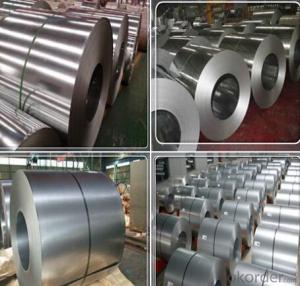Hot Selling Cold Rolled 304 Stainless Steel Coil
- Loading Port:
- Tianjin
- Payment Terms:
- TT OR LC
- Min Order Qty:
- 25 m.t.
- Supply Capability:
- 10000 m.t./month
OKorder Service Pledge
OKorder Financial Service
You Might Also Like
description:
Model NO.:304 stainless steel coil
Type:Stainless Steel Coil
Shape:Round
Grade:201/202/301/303/304/304L/316/316L/321/310S/401/409
Certification:ISO, SGS, BV, RoHS, IBR, AISI, ASTM, GB, EN, DIN, JIS
Perforated:Not Perforated
Standard:ASTM, AISI, GB, JIS, DIN, EN
Technique:Cold Rolled
Surface Treatment:2b, Ba,No.1,No.2e,No.2D,No.3,No.4,Hl
Thc:0.3-2.0mm
Width:1000mm, 1219mm, 1240mm, 1500mm, 1800mm, 2000mm
Treatment:2b, Ba,No.1,No.2e,No.2D,No.3,No.4,Hl
Material:201/202/301/303/304/304L/316/316L/321/310S/401/409
Application:Foodstuff, Gas, Metallurgy, Biology
Export Markets:Global
| Product | Stainless Steel Coil |
| Grade | 201/202/301/303/304/304L/316/316L/321/310S/401/409/410/ 420J1/420J2/430/439/443/444 |
| Surface Finish | 2B, BA,NO.1,NO.2E,NO.2D,NO.3,NO.4,HL,8K |
| Technique | cold rolled |
| Certification | ISO,DNV,SGS,CE |
| Standard | JIS/GB/DIN/ASTM/AISI/EN |
| Thickness | 0.16-2.0mm |
| Length | 2000mm-6000mm or as customer request |
| Width | 1000mm, 1219mm, 1240mm, 1500mm, 1800mm, 2000mm |
| Supply Ability | 5000mt Per Month |
| Minimum Order Quantity | 2t |
| Type | Coil |
| Application | Foodstuff, gas, metallurgy, biology, electron, chemical, petroleum, boiler, nuclear energy Medical equipment, fertilizer, etc. |
| Shipment Terms | FOB CIF CFR |
| Acid and Corrosion Resistance | High-strength steel |
| Packaging Detail | Standard Export Seaworthy Package |
| Delivery Detail | 0~30days after order |
| Payment Terms | T/T L/C |
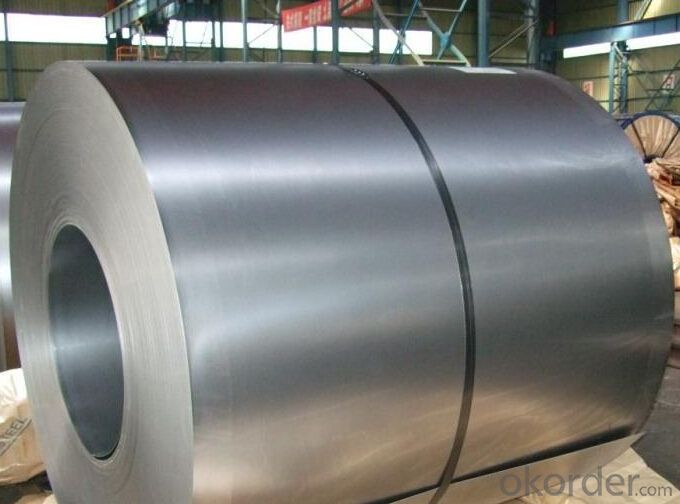
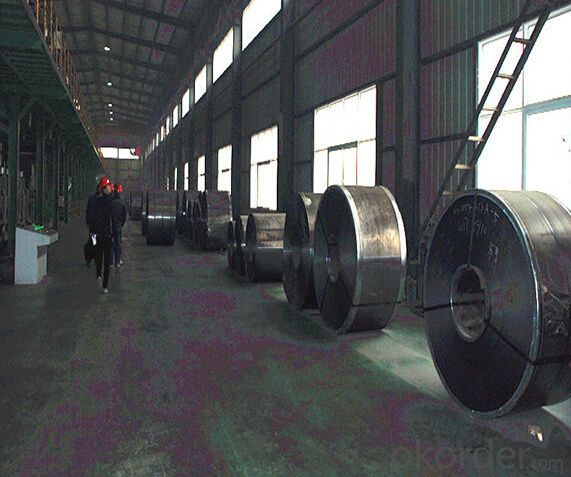
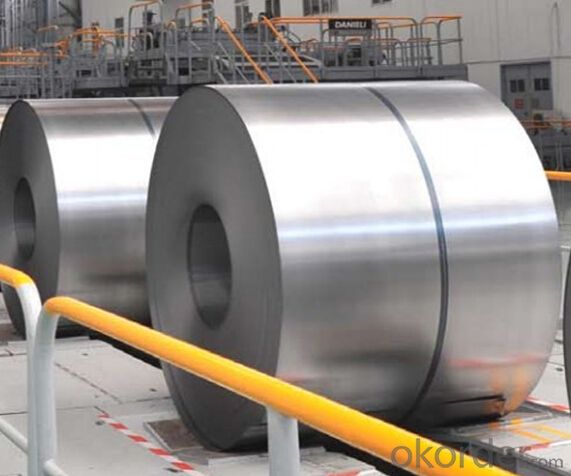
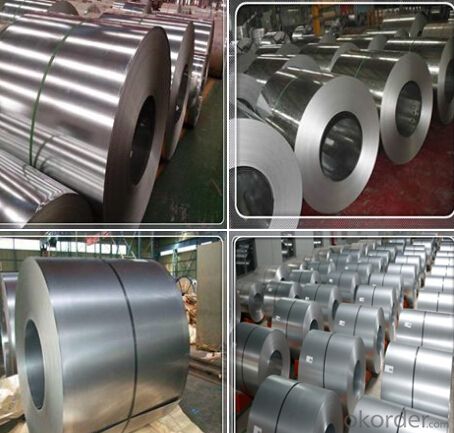
- Q:What are the common applications of stainless steel coils?
- Stainless steel coils have a wide range of applications due to their unique properties and characteristics. Some of the most common applications of stainless steel coils include: 1. Automotive industry: Stainless steel coils are widely used in the automotive industry for various components such as exhaust systems, mufflers, and catalytic converters. The corrosion resistance and durability of stainless steel make it an ideal choice for these applications. 2. Construction industry: Stainless steel coils are extensively used in the construction industry for structural elements, roofing, cladding, and facades. Its high strength, resistance to corrosion, and aesthetic appeal make stainless steel a popular choice for architectural projects. 3. Kitchen appliances: Stainless steel coils are commonly used in the manufacturing of kitchen appliances such as refrigerators, stoves, ovens, and dishwashers. The easy cleanability, resistance to heat and stains, and hygienic properties of stainless steel make it a preferred material for these applications. 4. Food processing industry: Stainless steel coils are widely used in the food processing industry for equipment such as tanks, pipes, and conveyor systems. The corrosion resistance and easy cleanability of stainless steel ensure the integrity and hygiene of food products. 5. Medical industry: Stainless steel coils find extensive use in the medical industry for various applications such as medical devices, surgical instruments, and implants. The biocompatibility, strength, and resistance to corrosion make stainless steel an ideal material for these critical healthcare applications. 6. Energy sector: Stainless steel coils are used in the energy sector for applications such as heat exchangers, boilers, and pipelines. The high-temperature resistance, excellent mechanical properties, and corrosion resistance of stainless steel make it suitable for these demanding applications. 7. Chemical industry: Stainless steel coils are employed in the chemical industry for storage tanks, piping systems, and reactors. The corrosion resistance and ability to withstand high temperatures and aggressive chemicals make stainless steel coils a reliable choice for handling various chemical substances. 8. Manufacturing industry: Stainless steel coils are used in a wide range of manufacturing processes such as stamping, forming, and fabrication. The versatility, durability, and ease of machining of stainless steel make it a popular choice for various industrial applications. Overall, the common applications of stainless steel coils are vast and varied, thanks to their exceptional properties like corrosion resistance, strength, durability, and aesthetic appeal.
- Q:What are the common uses of pre-painted steel coils?
- Pre-painted steel coils are commonly used in various industries such as construction, automotive, and appliance manufacturing. They are primarily utilized for exterior and interior building applications, including roofing, siding, and wall panels. Additionally, pre-painted steel coils find extensive usage in producing automotive parts, such as body panels and structural components. The coils are also employed in the manufacturing of appliances like refrigerators, ovens, and washing machines, providing a durable and aesthetically pleasing finish.
- Q:What is the major disadvantage of hardened steel? Do you think this form of iron would be wear resistant and retain a sharpened edge?
- The major disadvantage of hardened steel is that it is very brittle unless it is tempered. Hardened steel would be wear resistant, and would hold an edge as long as you don't cut anything harder than a boiled egg - the impact of the knife on a cutting board would shatter it.
- Q:What minerals are mixed to make steel?
- It depends on the type of steel that you want. For example- A cold drawn carbon steel spring wire consists of Carbon,Silicon,Manganese,sulphur potassium. If you want to make an alloy steel you can also add chrome,vanadium , nickel etc. It depends on the combinations and percentages of each used.
- Q:I was wondering whether anyone knew if painted steels rusts at the same speed as steel that isn't painted. Also, does steel rust quicker than aluminium?Thank you
- Painting a piece of steel will coat it with a protective layer, causing it to not rust (not get oxidised). Aluminum does not rust.
- Q:How are steel coils used in the production of storage tanks and silos?
- Steel coils are an essential component in the production of storage tanks and silos due to their strength and durability. These coils are typically made from high-quality steel and are processed through various manufacturing techniques to attain the desired thickness and shape. In the production process, steel coils are first uncoiled and then cut into specific sizes and lengths to meet the requirements of the storage tank or silo design. The coils are then shaped into cylindrical sections, using bending and rolling machines, to create the main body of the tank or silo. Once the desired shape is achieved, the coils are welded together to form a continuous and secure seam. This welding process ensures that the tanks and silos are leak-proof and can withstand the pressure exerted by the stored materials. Furthermore, steel coils also play a crucial role in reinforcing the structure of storage tanks and silos. They are often used to create the roofs, bottoms, and other structural components of these storage units. The strength and resilience of steel make it ideal for withstanding the weight of the stored materials and any external forces that may be exerted on the tank or silo. Additionally, steel coils can be coated or treated with protective materials to enhance their resistance to corrosion and extend their lifespan. This is particularly important for storage tanks and silos that are used to store corrosive substances or are exposed to harsh environmental conditions. Overall, steel coils are a fundamental element in the production of storage tanks and silos, providing the necessary strength, durability, and structural integrity required for these storage units.
- Q:Im in the process of replacing the gutters/down spouts on my house. The top of the house is four sided. The bottom level has a porch area with 3 sides, two smaller roofs in the back, and one small roof on the side with all stainless steel gutters. A two story house. Not sure of the demensions. They were made at a Steel Mill where the previous owner, worked.This guy wants to buy the stainless gutters but I need to know the market value of this steel and offer him a price. Can someone tell me what I can sell it for? Does it go by the pound? Foot? Can you give me an idea please? Theres a lot of it! I have no clue what to do! Thanks!
- i know it goes buy the pound but i do not know how mutch a pound.waite for some more answers someone must know.or call your local junk yard and ask them.
- Q:Ok I know this sounds stupid but is there anyway to make stainless steel look older? It looks too new and I don't want it like that. Thanks.
- Its called stainless for a reason :) many grades are out there, 300 400 series. You could use acid to make it look older but you wouldnt want to cook with it after chemically converting it with acid.Personally i like cast iron. It will last a life time + and looks very cool. Sorry no safe way to do it and cook with it. B^
- Q:How are steel coils used in the production of structural components?
- Steel coils are an integral part of the production process for structural components. These coils, which are made of steel that has been rolled into a continuous strip, provide the raw material necessary for manufacturing a variety of structural components, such as beams, columns, and trusses. The first step in using steel coils for structural components involves uncoiling the strip and cutting it into the desired lengths. This can be done using a variety of cutting methods, such as shearing or sawing. Once the coils are cut into lengths, they are then processed further to shape them into the specific structural components needed for a particular project. One common method used to shape steel coils into structural components is through the process of bending or forming. This involves using specialized machinery to bend or shape the steel into the desired configuration. For example, a steel coil can be bent into an I-beam shape, which is commonly used as a load-bearing structural component in buildings and bridges. Another method used to shape steel coils into structural components is through the process of welding. This involves joining multiple steel coils together to create a larger component. Welding is often used to fabricate components such as columns or trusses, which require the combination of multiple steel coils to achieve the necessary strength and structural integrity. Once the steel coils have been shaped and formed into the desired structural components, they may undergo additional processes, such as surface treatment or coating, to enhance their durability and resistance to corrosion. This ensures that the components will have a long lifespan and can withstand the demands of their intended applications. In summary, steel coils are essential in the production of structural components as they provide the raw material necessary for manufacturing. Through processes such as cutting, bending, and welding, steel coils are shaped into the specific components needed for various construction projects. These components play a crucial role in supporting the structural integrity of buildings, bridges, and other structures.
- Q:What are the common methods of testing the durability of steel coils?
- Steel coils undergo various testing methods to assess their durability, strength, and resistance to different stresses and conditions. Some commonly used techniques include: 1. Tensile testing: This method measures the maximum stress a coil can bear before breaking or deforming by subjecting it to tension. It provides valuable insights into the strength and ductility of steel coils. 2. Bend testing: This method evaluates the flexibility and resistance to deformation of steel coils by bending them to a specific angle and checking for cracks or fractures. It is essential for assessing coil durability in industries like construction or automotive. 3. Impact testing: This method determines the ability of steel coils to withstand sudden shocks or impacts. It involves striking the coil with a heavy object and measuring energy absorption or deformation. Impact testing helps identify coil toughness and resistance to sudden loading conditions. 4. Corrosion testing: Steel coils often face corrosive environments like moisture or chemicals. Corrosion testing examines the resistance of steel to degradation caused by these agents. Salt spray or electrochemical testing simulates and evaluates coil durability in corrosive conditions. 5. Fatigue testing: This method assesses the ability of steel coils to endure repeated loading and unloading cycles. It subjects the coil to cyclic stresses until failure. Fatigue testing is crucial in machinery or infrastructure applications where coils experience repetitive loading. 6. Hardness testing: This method gauges the resistance of steel coils to indentation or scratching, providing information about their strength and wear resistance. Common hardness tests include Brinell, Rockwell, and Vickers methods. 7. Non-destructive testing: In addition to the destructive methods mentioned above, non-destructive techniques like ultrasonic testing, magnetic particle inspection, or X-ray testing are used to detect internal defects or flaws without damaging the coil. By utilizing these testing methods, manufacturers and industries can ensure that steel coils meet the required durability standards and perform reliably in their intended applications.
1. Manufacturer Overview |
|
|---|---|
| Location | |
| Year Established | |
| Annual Output Value | |
| Main Markets | |
| Company Certifications | |
2. Manufacturer Certificates |
|
|---|---|
| a) Certification Name | |
| Range | |
| Reference | |
| Validity Period | |
3. Manufacturer Capability |
|
|---|---|
| a)Trade Capacity | |
| Nearest Port | |
| Export Percentage | |
| No.of Employees in Trade Department | |
| Language Spoken: | |
| b)Factory Information | |
| Factory Size: | |
| No. of Production Lines | |
| Contract Manufacturing | |
| Product Price Range | |
Send your message to us
Hot Selling Cold Rolled 304 Stainless Steel Coil
- Loading Port:
- Tianjin
- Payment Terms:
- TT OR LC
- Min Order Qty:
- 25 m.t.
- Supply Capability:
- 10000 m.t./month
OKorder Service Pledge
OKorder Financial Service
Similar products
New products
Hot products
Related keywords
